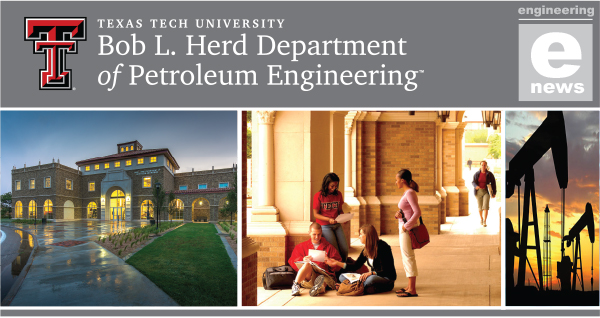
Faculty News & Research
New Faculty
Dr. Steven Henderson's primary research interests are petrophysics and well log analysis of conventional and unconventional reservoirs. Specifically, those interests include identifying novel methods of exploiting traditional subsurface petrophysical data at the field level to help independent oil and gas operators better understand their reservoir and maximize its hydrocarbon production. Attendant interests include core-to-log calibration, electrofacies and diagenetic regime analysis using well logs, and log quality control. Henderson received his Ph.D. in geosciences (subdisciplines: applied petrophysics and petroleum geology) from Texas Tech University in 1995. Dr. George Asquith chaired his Ph.D. dissertation committee. Before joining the TTU petroleum engineering department, he was an open hole field professional in the Permian Basin and lead technical instructor for Halliburton Wireline and Perforating.
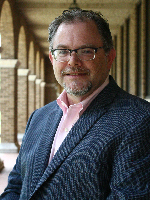
Dr. Sheldon Gorell's interests are in the areas of reservoir simulation and modeling. His received his Ph.D. in Chemical Engineering from Stanford University in 1983. Prior to joining Texas Tech University he worked for RPS consulting, Halliburton Energy Systems, Landmark Graphics and Shell Development Company where he served in various capacities, including senior research engineer, geostatics and reservoir simulation product manager, simulation trainer and developer, business development manager, director of reservoir management software development, research fellow, the chief technologist and subject matter expert for multi disciplinary modeling group and vice president technology for subsurface consulting. Dr. Gorell's areas of interest for research, past and future, include reservoir simulation gridding and upscaling, history matching and uncertainty, modeling for production for unconventional resource plays and compositional simulation.
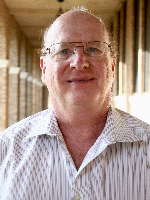
Dr. Ion Ispas holds a Ph.D. in Petroleum Engineering from the University of Oklahoma (1999). His oil industry experience includes field operations, research and management in petroleum engineering, geomechanics and chemical engineering with Amoco, British Petroleum, ConocoPhillips, Crystaltek, Schela Productie Gaze Naturale (SPGN) and teaching at the University of Oklahoma, British Petroleum – Chevron Training Alliance, and SPGN. He served in various capacities, including senior research engineer, research and development program manager, rock mechanics and hydraulic fracturing lab manager, geomechanics and hydraulic fracturing technical adviser, and, most recently, rock mechanics fellow. Research interests: geomechanics, specialized lab testing for reservoir characterization, fluid-rock interaction, well completions and sand control, hydraulic fracturing and production optimization.
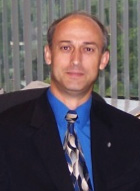
Departing Faculty
Over the summer Mr. Richard Bateman and Dr. Waylon House retired after many years of service with Texas Tech University. Mr. Bateman taught log evaluation and petrphysics since 2012. Dr. House was an Instructor and Director of MRI-PAC. He specialized in Mechanisms of Phase Separation − How Molecular Systems Undergoing Phase Transitions Form Nano−, Micro−, & Meso−Scale Structures, Gas Hydrate Formation/Dissolution in Aqueous Systems, and Asphaltene & Paraffin Precipitation in Oil Systems. In addition to retiring, Dr. M.Y. Soliman left to take the chair position at the University of Houston.
Current Research
Dr. Panacharoensawad is currently conducting the research in the area of multiphase flow and flow assurance. As shown below, his research group built a flow loop for hydrodynamics, heat transfer, and two-phase gas-liquid testing. Their preliminary results ensure the reliability of the flow loop for the experiment on medium-viscosity-oil/air two-phase flow experiment. For multiphase flow research areas, his group is pursuing the research in the area of medium-viscosity-oil/air two-phase flow hydrodynamics and heat transfer, Computational Fluid Dynamics simulation with opensource software, transient slug-flow heat-transfer calculation, and the modeling of transient multiphase flow with full and simplified one-dimension approaches. For flow assurance areas, his group is currently pursuing the research on slug flow paraffin deposition with the thermodynamics prediction for the gas-liquid two-phase flow wax deposit. Supervised learning numerical algorithms are being used to complement the transport model used in predicting paraffin deposition.

Dr. Panacharoensawad's Flowloop
Dr. Hossein Emadi, assistant professor of petroleum engineering, along with his graduate students, are working on several projects including optimizing gas lift valve design using both experimental and simulation studies and mitigating sand production problems in oil and gas wells by using swellabe rubber beads. The objectives of the gas lift valve project are to optimize the gas lift seat and the size of the ball. The results of this project will help the industry to modify the gas lift valve design and consequently, optimize the gas lift operation. The main objective of the swellable rubber beads project is to introduce a new sand production control method which will minimize the downhole sand production issue. Unlike the current methods, which only mitigate the sand production problem, the new method will address the root of the problem and try to eliminate it. The efficiency of the new method will then be compared with the other current methods such as fracpac.

On the left, blow down Test used for Gas Lift Valve Optimization, on the right, core
flooding system.
Dr. Ettehadtavakkol's research group focuses on the multi-disciplinary areas of interest to the E&P industry, including the unconventional reservoir engineering, enhanced oil recovery, data analytics, and petroleum environmental engineering. His current research projects focus on the production enhancement and optimization methods in mature oilfields (waterflooding, CO2-EOR, CO2 sequestration, workover optimization and conformance control), environmental aspect of oilfields water treatment and disposal planning, and characterization and prediction of unconventional wells flow performance.
Faculty Achievements
Dr. James Sheng was awarded the "SPE Regional Technical Award - Formation Evaluation" by the Society of Petroleum Engineers April 14, 2015, and has been published in the SPE JPT twice.

Dr. Marshall Watson was awarded the "Regional Distinguished Achievement Award for Petroleum Engineering Faculty" for the Southwestern North American Region by the Society of Petroleum Engineers in April 2016. He was recently published in the Oil and Gas Journal and the Permian Basin Petroleum Association.
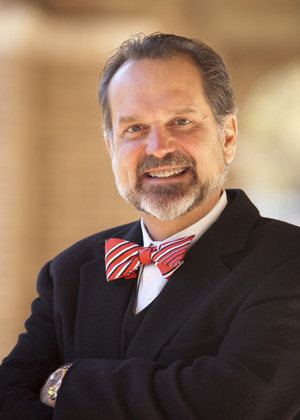
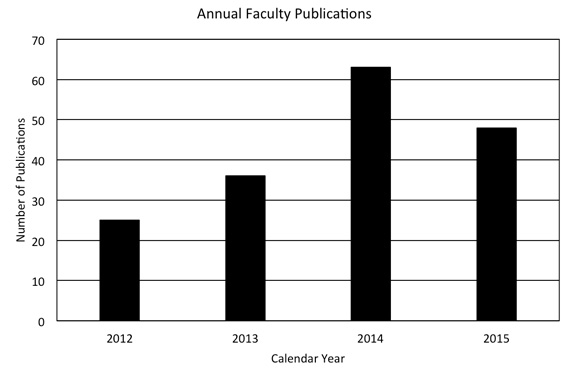
Edward E. Whitacre Jr. College of Engineering
-
Address
100 Engineering Center Box 43103 Lubbock, Texas 79409-3103 -
Phone
806.742.3451 -
Email
webmaster.coe@ttu.edu


